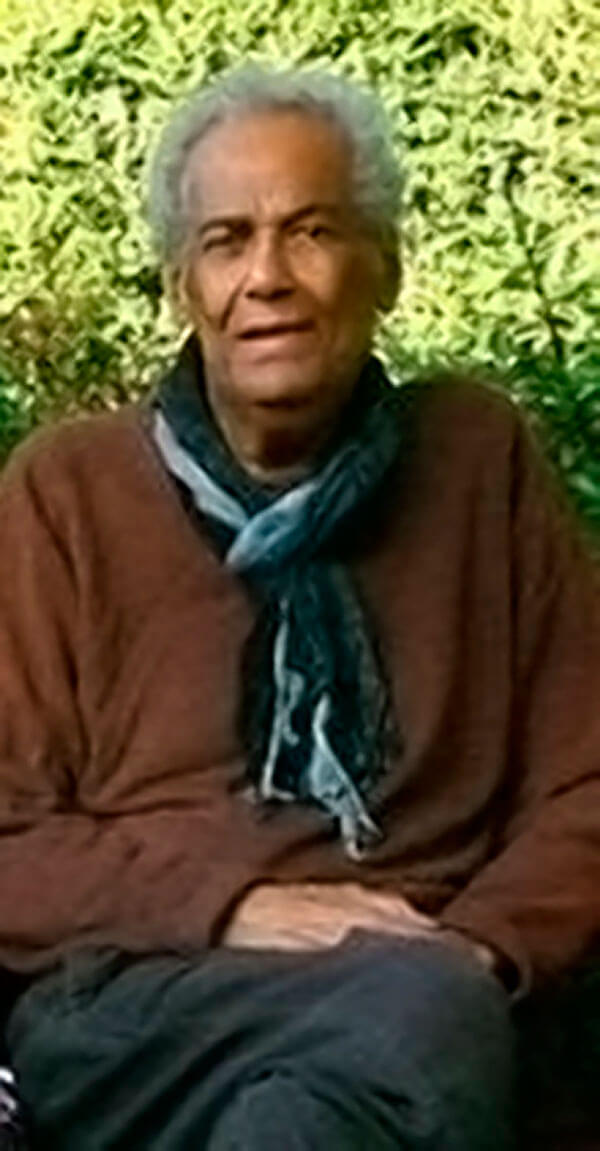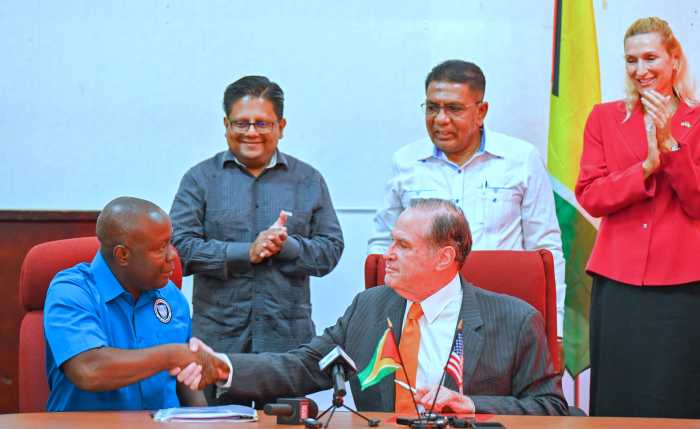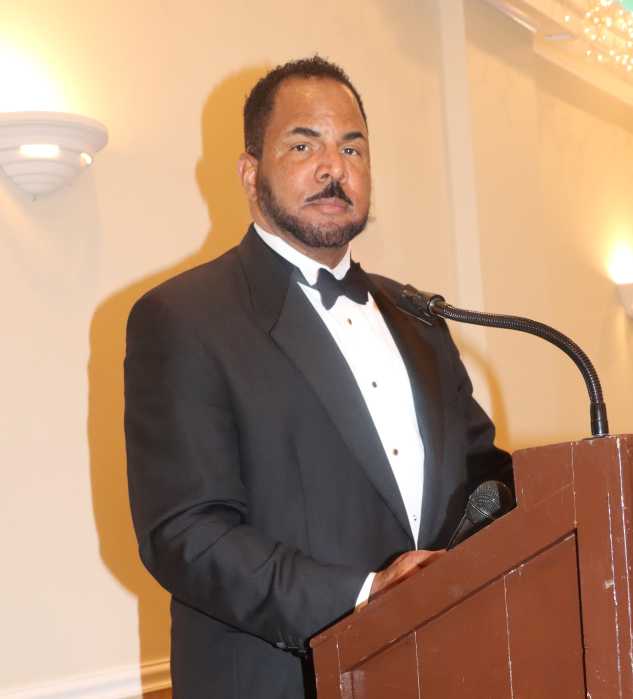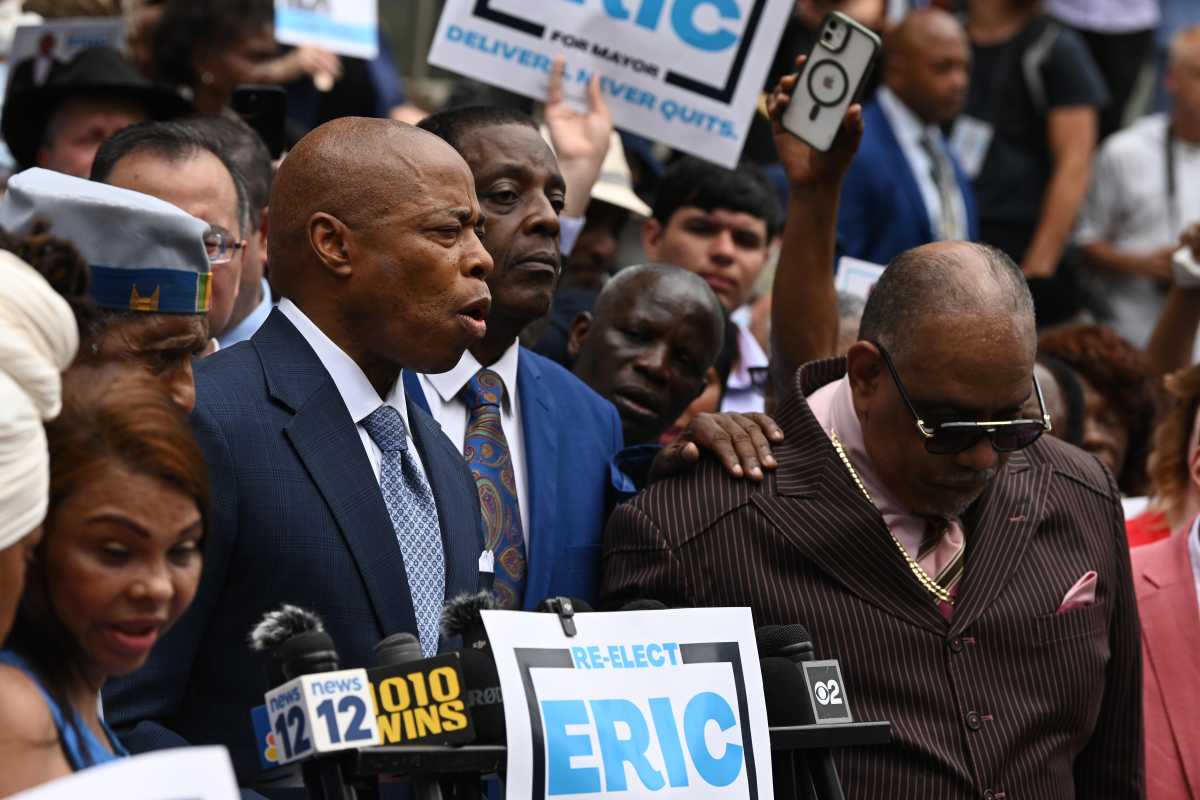Imagine in 2016, a television personality delivering coverage of the political primary campaigns and other news singing to calypso music?
Unimaginable on CBS, NBC, ABC, CNN, FOX or MSNBC or any national medium in the United States, however, Guyana-born Cy Grant dared to try and successfully executed this feat on the British Broadcasting Corporation (BBC-TV) almost six decades ago.
He regularly made appearances on the BBC and by 1957 made daily appearances on the “Tonight” current affairs show in the UK.
His unusual brand of delivering information was not only unique for any reporter but that he was also the very first Black man to appear on Europe’s highly reputed network proved groundbreaking.
He introduced levity to current affairs using calypso renditions to accompany news.
Grant’s “ability to compose tunes spontaneously and fit the news into verse was highly commended and won him the admiration of viewers nationwide,” a reporter accounted.
“For the first time, the country was seeing a Black face on TV on a regular basis.”
Grant, actor, singer and writer, born on Nov. 8, 1919 in Demerara, Guyana, died Feb. 13, 2010 at age 90 after living in Highgate, London, England.
His extensive career spanned acting, song writing, Civil Rights and a stint in the Royal Air Force.
That illustrious career was recently celebrated by a project at London Metropolitan Archives (LMA) in England.
Geoff Pick, director of London Metropolitan Archives said the LMA was “delighted that we have been entrusted with the Cy Grant Archive and have become a key partner in preserving and making accessible this outstanding collection that traces the life and work of a very special Londoner and hero of the Black Caribbean community.”
Documents, manuscripts, photographs and films dating from the 1940s to 2010 will now chart Grant’s enviable and admirable life and form part of the Cy Grant Archives.
They will be catalogued and made public for the first time, following an award of a $115,711 grant from the Heritage Lottery Fund to the Cy Grant Trust.
Archived and presented to inspire young people and raise awareness of his achievements Grant’s storied contribution to British history has been well documented.
His mother was a talented pianist and he grew up surrounded by music, playing the guitar and singing folk songs. He had two brothers and four sisters and excelled at school.
His interest in law emerged at an early age with a burning desire to study the legal profession. But at that time his parents could not afford the expensive schools.
After working as a civil servant, he migrated to Britain and on arrival in 1941 joined the Royal Air Force. He was one of approximately 400 men recruited from the Caribbean — the first cadre of soldiers from the region — after the huge losses in the Battle of Britain.
During military service he trained as a navigator and in 1943 during the Second World War was shot down in the Battle of the Ruhr, landing in Holland.
According to an obituary published in the Guardian newspaper in London, Joost Klootwijk, the young son of a Dutch farmer, looked on as his parents tried to help the airman. The boy was moved by the novelty of a uniformed Black RAF officer crash-landing near his home.
The Gestapo identified Grant as “a member of the Royal Air Force of indeterminate race” and he was held as a prisoner of war for two years.
Grant later used that phrase for the title of his book about his war service.
The wartime encounter must have made an indelible impression on the farmer’s son because as an adult he research history on the RAF enabling his son, Hans, to write a book about Grant’s crew, “Lancaster W4827: Failed to Return.”
Hans ultimately met Grant and together they compiled a permanent online archive of Caribbean aircrew in the RAF. It occupied much of the last 18 months of Grant’s life.
Grant eventually also met Joost Klootwijk during a film shoot. The Dutchman was allegedly overcome with emotion at being in the presence of a man he had pictured in his mind as a real-life hero since he was a boy.
Grant was humbled by the esteem in which RAF aircrew are held by the Dutch and regretted that they had not been recognized in a similar way at home.
One of the curious by-products of Grant’s RAF experience was the 1960s marionette TV series, “Captain Scarlet and the Mysterons.”
The creator of the series, Gerry Anderson, had lost his own brother over the Netherlands in WWII, and he drew on Grant’s personal qualities to develop one of the first positive Black fictional characters in children’s television in Britain.
Although Grant qualified as a barrister in 1950, he struggled to get work. In his own words, “this was Britain in peacetime and I was no longer useful.”
Nevertheless, he became a recognizable voice on radio, singing folk songs, and recorded several albums. He also hosted his own TV series, “For Members Only,” in the mid-50s, interviewing a variety of guests and playing the guitar.
In 1956, he appeared in “A Man from the Sun,” a television drama written by John Elliot about the experience of Caribbean migrants to Britain after WW II.
During that same period, he voiced the character Anderson created on TV and also appeared in an episode of “The Persuaders” opposite actor Roger Moore, the actor who won accolades portraying Britain’s most endearing James Bond spy character.
In addition to being a singer, song writer, broadcaster, writer, multi-ethnic arts community organizer and Civil Rights activist, Grant forged a career in the theater. He successfully auditioned for Laurence Olivier and made stage appearances in Olivier’s Festival of Britain company of thespians in London and New York.
In 1965, he was acclaimed as Othello at the Phoenix theatre, in Leicester. The next year he starred in “Cindy Ella” with singer Cleo Laine at the Garrick Theater, in London.
He also appeared in the movie “Shaft in Africa” in 1973.”
That same year he founded Drum Arts Centre in London.
In 1976 he scored another movie role in the film, “At the Earth’s Core.”
The laudatory obituary noted that two major influences in Grant’s life, “which helped determine the direction of his artistic expression and his later writing, were the poet, politician, philosopher and architect of negritude, Aimé Césaire, and a Chinese text, the “Tao Te Ching.”
“He produced and performed Césaire’s epic poem “Notebook of a Return to the Native Land” as a one-man show, touring Britain for more than two years. He was later to say of Césaire: “His revolt against Europe is what worked on me in a subliminal yet positive way. It wasn’t just a revolt against racism, colonialism and the excesses of European culture, but a call for a return to our native human values, to recognize that nature is alive and bounteous and that we should not abuse her.”
In his book, “Blackness and the Dreaming Soul” (2007), he argued that white society must first discover new ways of seeing itself, in order that it might comprehend and value the “otherness” of its indigenous Black citizens.
In his essay “The Way of the West “(2008), he proposed that the Black man, having reclaimed his authentic history and recovered his lost soul, must not fall into the trap of aspiring to assimilate into the so-called civilized values of his former oppressors.
In his last years, he wrote copiously and did everything with a new urgency, especially after he became ill.
He particularly wanted to see his war memoirs, essays and poems form part of the curriculums in schools and universities.
In 2014, Grant’s family donated his entire archive to LMA and last year, the Cy Grant Trust, LMA and Windrush Foundation formed a partnership to oversee the archive project.
Reportedly, it builds on a growing number of collections deposited at LMA by the Black African Caribbean community.
“This project means a great deal to our family,” Grant’s daughter Samantha Moxon said.
“My dad’s dream was that the importance of his work should be recognized and never forgotten.”
The project will connect young people to Grant and encourage them to learn about his achievements. Original source material will be made available to the public through youth / inter-generational workshops and events, a school education pack, online resources, and an exhibition hosted by the Marcus Garvey Library in Tottenham.
Screenings will take place at The British Film Institute and LMA.
The project will run until spring 2017, with a final celebration event to launch the archive catalogue.
The full release of the final catalogue will be available in 2017 by viewing London Metropolitan Archives’ online catalogue.
Grant is survived by his wife, Dorith, whom he married in 1956, their two daughters and one son; a son from an earlier marriage; and his sister, Valerie.
For more information on this outstanding Guyanese immigrant, log onto www.cygra
Catch You On The Inside!


























